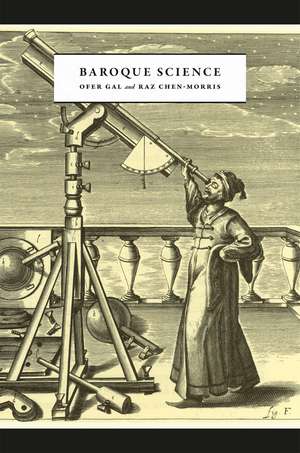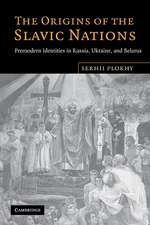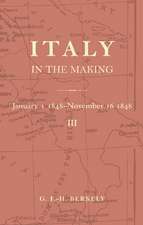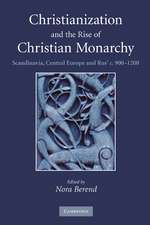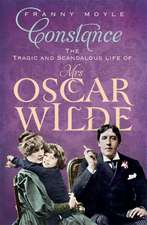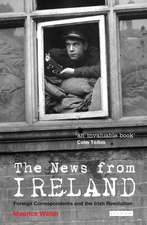Baroque Science
Autor Ofer Gal, Raz Chen-Morrisen Limba Engleză Paperback – sep 2014
In Baroque Science, Ofer Gal and Raz Chen-Morris present a radically new perspective on the scientific revolution of the seventeenth century. Instead of celebrating the triumph of reason and rationality, they study the paradoxes and anxieties that stemmed from the New Science and the intellectual compromises that shaped it and enabled its spectacular success.
Gal and Chen-Morris show how the protagonists of the new mathematical natural philosophy grasped at the very far and very small by entrusting observation to the mediation of artificial instruments, and how they justified this mediation by naturalizing and denigrating the human senses. They show how the physical-mathematical ordering of heavens and earth demanded obscure and spurious mathematical procedures, replacing the divine harmonies of the late Renaissance with an assemblage of isolated, contingent laws and approximated constants. Finally, they show how the new savants, forced to contend that reason is hopelessly estranged from its surrounding world and that nature is irreducibly complex, turned to the passions to provide an alternative, naturalized foundation for their epistemology and ethics.
Enforcing order in the face of threatening chaos, blurring the boundaries of the natural and the artificial, and mobilizing the passions in the service of objective knowledge, the New Science, Gal and Chen-Morris reveal, is a Baroque phenomenon: deeply entrenched in and crucially formative of the culture of its time.
Gal and Chen-Morris show how the protagonists of the new mathematical natural philosophy grasped at the very far and very small by entrusting observation to the mediation of artificial instruments, and how they justified this mediation by naturalizing and denigrating the human senses. They show how the physical-mathematical ordering of heavens and earth demanded obscure and spurious mathematical procedures, replacing the divine harmonies of the late Renaissance with an assemblage of isolated, contingent laws and approximated constants. Finally, they show how the new savants, forced to contend that reason is hopelessly estranged from its surrounding world and that nature is irreducibly complex, turned to the passions to provide an alternative, naturalized foundation for their epistemology and ethics.
Enforcing order in the face of threatening chaos, blurring the boundaries of the natural and the artificial, and mobilizing the passions in the service of objective knowledge, the New Science, Gal and Chen-Morris reveal, is a Baroque phenomenon: deeply entrenched in and crucially formative of the culture of its time.
Preț: 256.33 lei
Nou
Puncte Express: 384
Preț estimativ în valută:
49.06€ • 50.68$ • 40.83£
49.06€ • 50.68$ • 40.83£
Carte tipărită la comandă
Livrare economică 25 martie-08 aprilie
Preluare comenzi: 021 569.72.76
Specificații
ISBN-13: 9780226212982
ISBN-10: 022621298X
Pagini: 352
Ilustrații: 51 halftones
Dimensiuni: 152 x 229 x 23 mm
Greutate: 0.48 kg
Editura: University of Chicago Press
Colecția University of Chicago Press
ISBN-10: 022621298X
Pagini: 352
Ilustrații: 51 halftones
Dimensiuni: 152 x 229 x 23 mm
Greutate: 0.48 kg
Editura: University of Chicago Press
Colecția University of Chicago Press
Notă biografică
Ofer Gal is associate professor of the history and philosophy of science at the University of Sydney. Raz Chen-Morris is a senior lecturer in the Science, Technology, and Society Program at Bar-Ilan University.
Cuprins
List of Figures
Acknowledgments
Acknowledgments
Introduction
I OBSERVATION
1 Science’s Disappearing Observer: Baroque Optics and the Enlightenment of Vision
2 Per aenigmate: Mirrors and Lenses as Cognitive Tools in Medieval and Renaissance Europe
3 The Specter of the Telescope: Radical Instrumentalism from Galileo to Hooke
II MATHEMATIZATION
4 Nature’s Drawing: Problems and Resolutions in the Mathematization of Motion
5 From Divine Order to Human Approximation: Mathematics in Baroque Science
6 The Emergence of Baroque Mathematical Natural Philosophy: An Archeology of the Inverse Square Law
III PASSIONS
7 Passions, Imagination, and the Persona of the New Savant
Abbreviations
Notes
Bibliography
Index
Recenzii
“Gal and Chen-Morris have mastered a diverse set of sources to support their claim that the ‘New Science’ developed from the tensions in the baroque era. This important work will provide scholars with new questions and offer opportunities to reconsider timeless questions about the nature of humanity and knowledge. Highly recommended.”
“Baroque Science will help to break down the barriers between histories of science, art, and culture in the seventeenth century, and does an excellent job of tying together diverse elements in the thinking of its protagonists through original readings of their optical, mathematical, and intellectual epistemologies.”
“A novel and inspiring view of the Scientific Revolution. The book is superbly written and perfectly accessible for the general historian. I highly recommend it.”
“Gal and Chen-Morris’s book shows with some originality how scientists unpicked entrenched beliefs and replaced them with a new science and a new world view. A study of spectacles in medieval paintings provides a fascinating insight into how such aids were perceived in relation to the ‘truth’ imparted by the naked eye. The handling of Hooke’s hesitation to apply the inverse square law to planetary orbits is equally absorbing, keenly revealing the tentative, painstaking deliberations that scientists of the time were engaged in. And the endeavours of Galileo and Kepler to deduce the ‘perfect’ mathematical laws of nature are insightfully contrasted to Isaac Newton’s calm acceptance of an ‘imperfect’ universe and the crucial role of approximations.”
“In one sense Gal and Chen-Morris have given us a traditional intellectual history of the development of seventeenth-century science. They concentrate on showing us how the giants of the period moved mathematics, astronomy, optics, and physics forward. But they have developed an interesting twist. Their view of the science of this period as Baroque shows us that science did not develop linearly, nor was it inevitable. Gal and Chen-Morris effectively describe the strangeness, the paradoxes, and the leaps of imagination that played crucial roles.”
"Building on recent work on the shifting ground between the mixed mathematical sciences and natural philosophy by Stephen Gaukroger and John Schuster, among others, this book offers a highly original account of the making of the new science in the seventeenth century."
“How did Kepler, Descartes, Newton, and their contemporaries envision the mathematical and physical complexity of the world? In this impressive rethinking of seventeenth-century science, Ofer Gal and Raz Chen-Morris offer a new interpretation of the birth of modern science as a baroque subject born from paradox, unleashed by instruments, and reassembled in the imagination. A highly original and interdisciplinary study of the early modern natural philosopher’s anxious quest to order the world.”
“A new grand narrative of the mathematical Scientific Revolution, Baroque Science binds together the early modern challenges of finding epistemic order, of creating new artifices for knowledge, and of profiting from the imagination in a lucid gem of a book both technically sophisticated and accessible. Through its deft readings of Kepler, Galileo, Descartes, Hooke, and Newton, and challenging retellings of the development of optics and the inverse square law of gravitation, Baroque Science forces us anew to attend the cultural and philosophical shifts that made different mathematicizations of the world possible, compelling—as well as limiting. Passionate in subject matter and form, the book will enliven and inspire many a seminar and many a scholar.”
